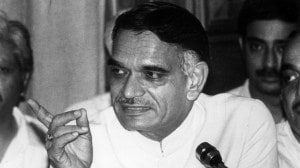Taliban took control of Afghanistan two years ago on August 15, 2021, as US and NATO forces made a hurried and chaotic exit after almost two decades of war. This week, they marked their second anniversary as Afghanistan’s new rulers.
In a country of about 40 million people, international aid agencies estimate that about 15 million people will face “crisis” levels of food insecurity this year, with 2.8 million in the “emergency” category, the fourth highest in the world.

In Geneva, the World Health Organization expressed concern about Afghans’ lack of access to basic health services, about 20% of the population suffer from mental health problems and 4 million from drug addiction and associated disorders. “Most health facilities have poor infrastructure, and there are fewer qualified health care workers due to immigration, limits on women’s movement and employment, and reduced funds to pay salaries and keep facilities open,” a WHO spokesperson has said. In short, the situation is dire in Afghanistan.
In the book ‘Games without Rules: The Often-Interrupted History of Afghanistan’, author Tamim Ansary writes: “There is a game called Buzkashi that is played only in Afghanistan and the central Asian steppes. It involves men on horseback competing to snatch a goat carcass off the ground and carry it to each of two designated posts while the other players, riding alongside at full gallop, fight to wrest the goat carcass away. The men play as individuals, each for his own glory. There are no teams. There is no set number of players. The distance between the posts is arbitrary. The field of play has no boundaries or chalk marks. No referee rides alongside to whistle plays dead and none is needed, for there are no fouls. The game is governed and regulated by its own traditions, by the social context and its customs, and by the implicit understandings among the players. If you need the protection of an official rule book, you shouldn’t be playing.”
He adds that 200 years ago, Buzkashi offered an apt metaphor for Afghan society. The major theme of the country’s history since then has been a contention about whether and how to impose rules on the Buzkashi of Afghan society.
Taliban’s ascent and their rule over the last two years is an example of the country, which has refused to play with any rules of the world.
And that has put India in a tight spot, which has chosen to navigate its course in Afghanistan with humanitarian assistance for the people of the country.
Story continues below this ad
In the last two decades, between 2001 and 2021, India became one of the top five donors to Afghanistan with pledges of more US$3 billion in aid. It had more than 500 projects spread across Afghanistan’s 34 provinces in five pillars: humanitarian assistance, infrastructure development, economic development, connectivity and capacity building.
But, post August 2021, it has only continued with humanitarian assistance as the sole pillar so far.
In view of the deteriorating humanitarian situation and urgent appeals by the UN agencies, India continues to supply humanitarian assistance, including medical and food aid for the Afghan people. In this endeavour, the Indian government has partnered with United Nations World Food Programme (UNWFP) for the internal distribution of wheat within Afghanistan. Under this partnership, they have supplied a total of 47,500 MTs of wheat assistance to UNWFP centres in Afghanistan. The recent ongoing shipments are being sent through Chabahar Port and being handed over to UNWFP at Herat in Afghanistan.
Delhi’s contribution has been acknowledged by the relevant stakeholders in Afghanistan, including UNWFP. In their recent tweet, UNWFP mentioned that “For the first half of this year, 16 million people in Afghanistan received life-saving food from WFP. We are grateful for generous donors like India who make that happen”.
Story continues below this ad
On the medical assistance side, India has so far supplied almost 200 tonnes of medical assistance consisting of essential medicines, COVID vaccines, anti-TB medicines and medical/surgical items like pediatric stethoscope, Sphygmomanometer mobile type with pediatric BP cuff, infusion pump, drip chamber set, electrocautery, nylon sutures etc. They were handed over to authorities of the Indira Gandhi Children Hospital, Kabul. India has also continued its support for the Habibia School, Kabul and has sent assistance of winter clothing and stationary items for the primary students.
Recently, India also partnered with the United Nations Office on Drugs and Crimes (UNODC) in Afghanistan to provide humanitarian assistance for the welfare of the Afghan drug user population, especially females. Under this partnership, they have supplied 1,100 units of female hygiene kits & blankets and medical assistance to UNODC, Kabul. These items will be used by UNODC in their female drug rehabilitation camps across Afghanistan. India would be providing medical assistance for these rehabilitation camps.
India has been following a policy of cautious engagement, where its current focus has been on providing aid, but not grant recognition.
The process to engage began in August 2021, when Indian envoy in Qatar Deepak Mittal met head of Taliban’s political office, Sher Mohammad Abbas Stanekzai in Doha at the latter’s request.
Story continues below this ad
Thereafter, on June 2, 2022, a delegation led by Joint Secretary (Pakistan, Afghanistan and Iran) in the Ministry of External Affairs, J P Singh visited Kabul to “oversee the delivery operations of India’s humanitarian assistance to Afghanistan”. The team also met senior members of the Taliban and assessed the security situation in the country.
And on June 23, the government decided to send a technical team to “closely monitor and coordinate the efforts of various stakeholders for the effective delivery of humanitarian assistance”. This resumption of diplomatic activity has been a significant policy change, and in the last one year, they have operated without any security threat so far.
For India, it is important to have eyes and ears in Afghanistan and ensure that the country’s rulers have stakes in not harming Indian interests. India has also not granted any legitimacy and recognition to the Taliban regime so far, although some trade has been taking place. The Taliban needs the aid, and that’s an important lever in India’s hand.
In public, New Delhi swears by the UN Security Council Resolution 2593, which was passed under its Presidency in August 2021. The UNSCR 2593 urged the international community to ensure that Afghanistan is not used as a base to launch an attack on another country, nor should it act as a shelter or financier. It also called on all parties to seek an “inclusive, negotiated political settlement, with the full, equal and meaningful participation of women.”
Story continues below this ad
But the Taliban has not shown any progress towards this resolution.
The Taliban view their rule of Afghanistan as open-ended, drawing legitimacy from Islamic law and facing no significant threat, their chief spokesman Zabihullah Mujahid has said, while marking the second anniversary of the Taliban takeover of the country. Basically this means that there is no future of democracy in the country, and political parties will cease to exist and elections are not going to take place. He also suggested a ban on female education will remain in place.
The ban on girls attending school beyond sixth grade is part of the series of regressive measures that now keep Afghan girls and women away from classrooms, most jobs and much of public life.
At the G20 Extraordinary Summit on Afghanistan in October 2021, Prime Minister Narendra Modi had urged the G20 countries to seek accountability from the Taliban on the basis of UNSC Resolution 2593.
Story continues below this ad
As New Delhi hosts the G20 leaders’ summit next month, it’s time India leads the international community to demand accountability from the Taliban and think of — to borrow Tamim Ansary’s words — on “how to impose rules on the Buzkashi of Afghan society”.








































